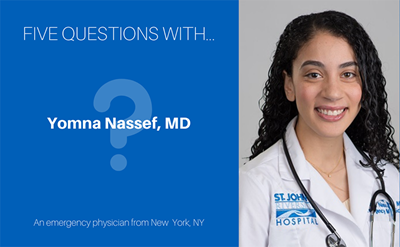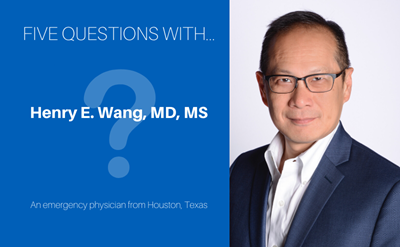Mara Windsor, DO, FACEP, is an emergency physician and a member of the Arizona College of Emergency Physicians.
My resilience is tested every day as an emergency physician. If I am being honest, few if any emergency physicians are spared from the effects of stress, anxiety, and grief that we all continue to endure. But within this crisis, there is hope. The pandemic has created a tipping point for addressing physicians’ mental health.
The door is open for opportunities to improve the way we address mental health concerns among emergency care professionals. Many of us live for the adrenaline rush our specialty provides. We train for it and we learn to welcome it every day. But we know that the sustained release of fight or flight hormones isn’t healthy.
Even before the pandemic, juggling the demands of emergency departments at multiple hospitals while raising three children felt hard. I remember the moment it hit me that I needed to take mental health more seriously. About seven years ago, I was driving home to care for a severely ill newborn after 18 twelve-hour night shifts. I was burned out and I needed help. It was not easy to admit that I couldn’t juggle it all without support.
One thing I know is that if people are supported in their wellbeing, they will perform at their best. My experience on the frontlines inspired me to start a non-profit called L.I.F.E., which stands for Living in Fulfilled Enlightenment, to help teach health care professionals how to better deal with stress, practice restorative techniques, and maintain wellness and happiness.
But all the mindfulness and deep breathing in the world could not have prepared us for a global pandemic that brought life as we knew it to a screeching halt. I’m keenly aware that many of my colleagues grimace when summoned for a meeting with me, the chief wellness officer for a hospital system in Phoenix, Arizona. My colleagues and I want to protect our own mental health but a real stigma persists.
We worry about whether disclosing mental health care could hurt our careers or put our license to practice medicine in jeopardy. Too many of my emergency medicine colleagues feel they cannot seek the care they need because they could be marked through the disclosure process as somehow incapable of doing their job effectively. We urgently need real change.
We can expand support programs in our emergency departments and at our hospitals. At the state level, licensure and credentialing requirements can continue to evolve. And, at the national level, we can allocate resources and strengthen our commitment to addressing the factors that got us here in the first place.
There are brighter days ahead. But it is past time we admit that burnout is real. Now is the time to accelerate cultural change in medicine, reduce the stigma surrounding physician mental health care, and promote programs that prioritize the wellbeing of our frontline heroes during the pandemic and long after this crisis subsides.
The American College of Emergency Physicians strongly supports the Dr. Lorna Breen Health Care Provider Protection Act, which would take major steps to reduce and prevent suicide and burnout among health care professionals. Learn more about our work to protect emergency physicians' mental health.
 American College of Emergency Physicians
American College of Emergency Physicians







